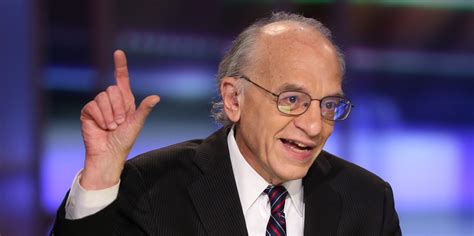A Quote by Robert D. Arnott
History teaches that when valuations are extreme, "mean reversion," a move towards historical norms, is likely. Once value stocks turn, the recovery can be fast and intense.
Related Quotes
Any profession should have norms around the issue you raise. And, in the words of the great economic thinker Albert Hirschman, we all owe a measure of loyalty to professional norms. But when the norms seem unhelpful or unproductive, one needs to speak up - to activate voice. And in the extreme, if the profession and one's colleagues seem estranged from a thoughtfully selected course of action, you need to consider the possibility of exit. Of course, if you knowingly violate norms or laws, you need to be prepared to face the consequences - or to lead a revolution!
With overwhelming military strength now deployed against him and with intense monitoring from space surveillance and the U.N. inspection team on the ground, any belligerent move by Saddam against a neighbor would be suicidal....If Iraq does possess such concealed weapons, as is quite likely, Saddam would use them only in the most extreme circumstances, in the face of an invasion of Iraq, when all hope of avoiding the destruction of his regime is lost.
The good thing about the dividend-paying stocks is, first of all you have stocks, which are real assets if we have some inflation. I think we're going to have 2%, 3% maybe 4%. That's a sweet spot for stocks. Corporations do well with that. It gives them pricing power. Their assets move up with prices. I'm not fearful of that inflation.
Ka is a wheel; its one purpose is to turn. The spin of ka always brings us back to the same place, to face and reface our mistakes and defeats until we can learn from them. When we learn from the past, the wheel continues to move forward, towards growth and evolution. When we don’t, the wheel spins backward, and we are given another chance. If once more we squander the opportunity, the wheel continues its rotation towards devolution, or destruction.






































